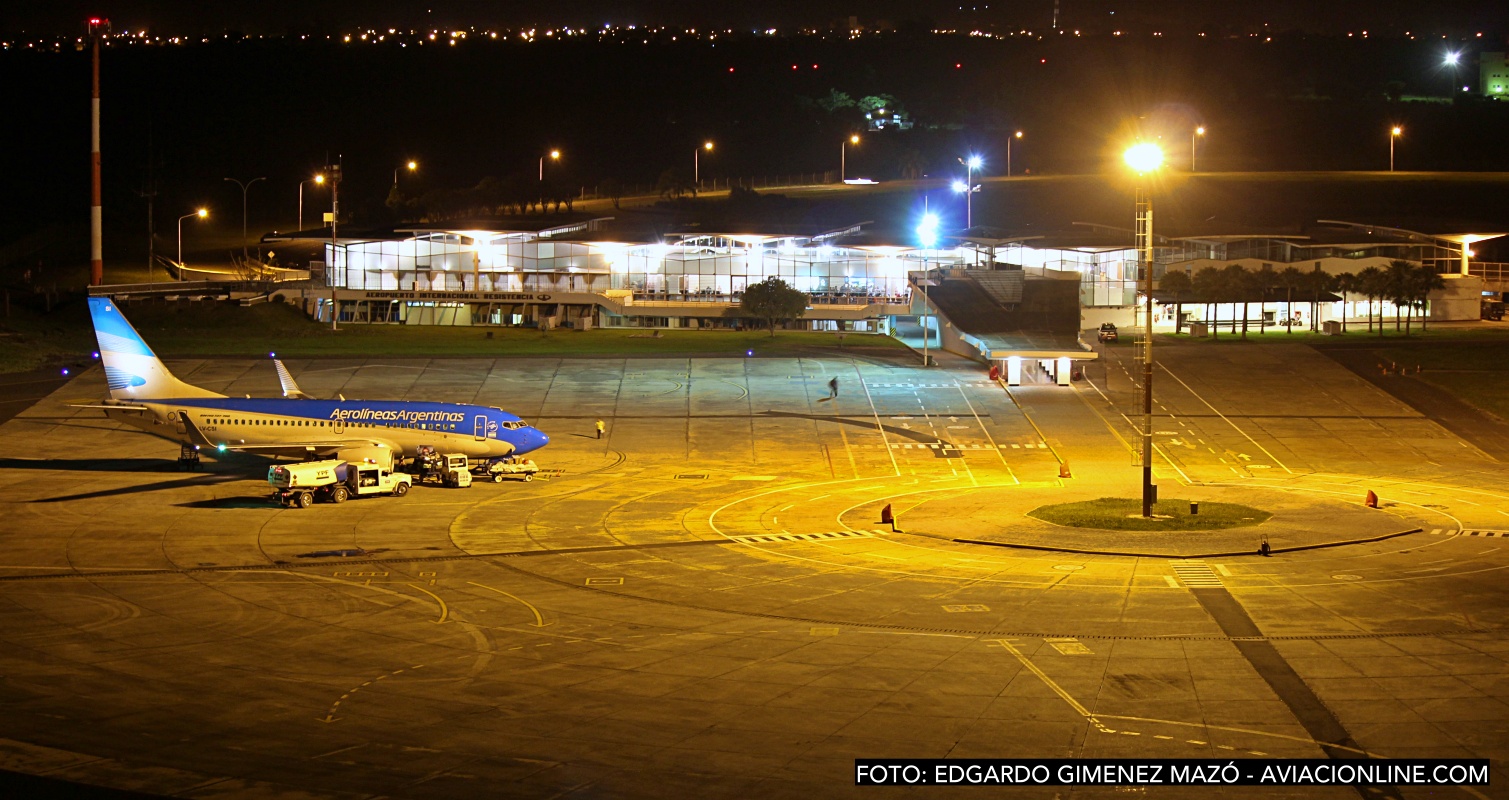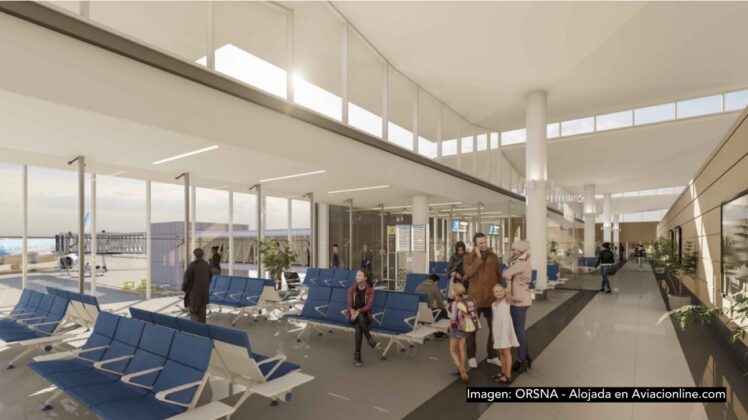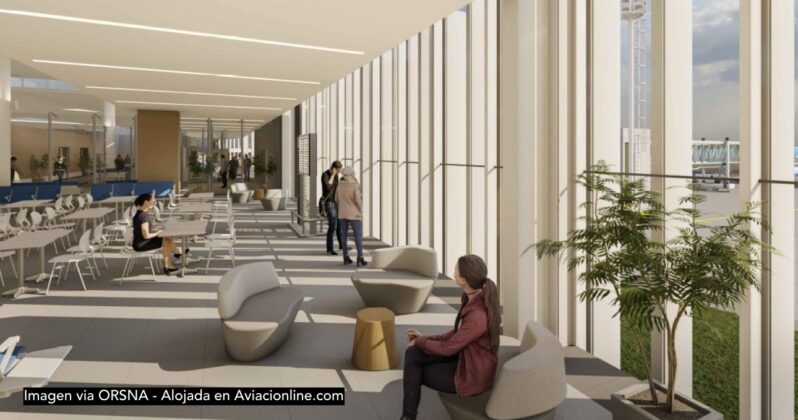Finally, the tender for the expansion and modernization of the current terminal at the Resistencia International Airport (RES/SARE) was announced. The project includes the expansion and modernization of the current terminal, adapting it to the current airport passenger movement. The investment will exceed ARS 3,700 million (~ USD 20 million at the official exchange rate).
The existing terminal has a total surface area of approximately 6,617 square meters, including the lounge. The layout is divided into two general areas: the east side is designated for arrivals, while the west side is used for passenger check-in and pre-boarding.
The focus of the work will be on modernizing and expanding the terminal to improve functionality and passenger flow, as well as the renovation of equipment, facilities, and technology. The total covered surface area of the new terminal will be 7,337 square meters, of which 720 square meters will be for expansion and 2,200 square meters for intervention.

The expansion will include:
Adding ramps for the disabled in public access.
New arrival hall and expansion, adding a new baggage claim belt and technology for the baggage management system, making the airport operation more efficient. The new arrangements will allow for a flow of 60 to 360 passengers per hour.
Relocation of the arrival hall businesses, which includes new businesses such as rental car companies, toilets, animal health control, and migration.
Expansion of the departure hall, which includes new businesses and the relocation of the food and beverage sector, allowing for a flow of 610 passengers per hour. The current restaurant/bar will be removed to expand the pre-boarding sector, placing it in front of the check-in sector.
Expansion of the check-in sector with new back offices.
The security sector will be expanded with two new positions.
A new pre-boarding hall will be constructed by relocating the current food and beverage facilities to make room for the expansion. This will allow for a passenger flow of 300 to 700 passengers per hour. The new pre-boarding area will include a concourse with two boarding gates and their respective core and bridge.
All enhancements to the current terminal will be carried out while maintaining its unique architectural features and language, including its curved surfaces and large windows that were innovative when the airport was opened in the late 1960s. These works are set to begin in March 2023 and will last for 15 months, during which the airport will remain open.
The last major renovation to the terminal was in 2008, when several sectors were refunctionalized and part of its characteristic jetty and satellite were demolished.
Works on the airside
Works will also be carried out on the airside, where the asphalt surface of street Alfa will be completely restored and its markings will be renewed. This street is the only one that connects the platform with runway 03-21. This work will last for three months and will require the airport to be closed for a period of 45 to 60 days. The tentative dates for the closure have not been announced yet.
In addition, new maintenance infrastructure and support services will be included, which will be improved with a new double-height masonry and metal structure building, with an operational mezzanine of 275 sqm, intended for ramp equipment, including a workshop, changing rooms for staff, storage and logistics offices. The work will be extended for 8 months, although it has not been yet tendered.
Resistencia’s current operations
Currently, Aerolineas Argentinas is the only regular operator in Resistencia with the following destinations:
Buenos Aires (Aeroparque/Ezeiza) with 18 weekly flights; from March, it will be increased to 21 flights per week, that is, three daily services. Operated by Boeing 737-700, Boeing 737-800 and Embraer 190 aircrafts.
Córdoba with 4 weekly flights. Operated by Embraer 190 aircrafts.
Salta with 2 weekly flights. Operated by Boeing 737-700 and Embraer 190 aircrafts.
According to data obtained from ANAC Argentina, in 2022, Resistencia moved 228,594 passengers, a recovery of 83.17% compared to 2019, but 72.34% compared to 2017, which recorded a record movement of 315,962 travelers. The three routes mentioned move the following passengers, with their occupancies:
Buenos Aires with 174,888 / 84%
Córdoba with 27,009 / 80%.
Salta with 14,741 / 60%.










